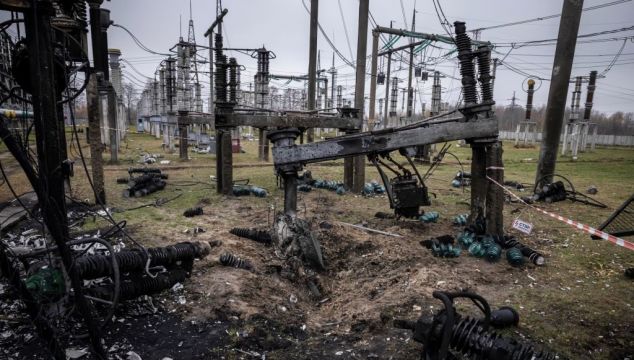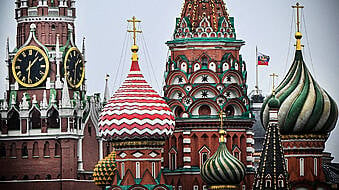Kyiv city authorities warned on Friday that a "complete shutdown" of the capital's power grid was possible and Ukraine's prime minister said almost half the country's energy system had been disabled by Russian attacks.
Russia, which invaded Ukraine in February, has stepped up attacks on Ukrainian energy facilities in recent weeks, and pounded power infrastructure across the country in heavy air strikes on Tuesday and Thursday.
"Unfortunately, Russia continues to carry out missile strikes on Ukraine's civilian and critical infrastructure," prime minister Denys Shmyhal said after talks with European trade commissioner Valdis Dombrovskis. "Almost half of our energy system is disabled."
Kyiv is one of the cities worst affected by the missile and drone strikes, which have at times knocked out electricity, heating and water in many areas as winter approaches.
Engineers have been racing to repair the power grid in the capital, which had its first snowfall of the season on Thursday.
"We are preparing for different scenarios, including a complete shutdown," Mykola Povoroznyk, deputy head of the Kyiv city administration, said in televised comments.
He did not say what would happen in the event of the power grid being completely shut down, but officials have said they are not considering evacuating any cities.
Falling temperatures
Ukraine has denounced the attacks on its energy infrastructure as Russian terrorism. Russia dismisses the criticism and describes the attacks are a response to Kyiv's "unwillingness" to hold peace talks.
Ukraine's state grid operator Ukrenergo wrote on Friday that the system was "withstanding the blows with dignity," but later declared emergency outages in addition to cuts that had already been scheduled top help carry out repairs.
"The enemy has already carried out six large-scale missile attacks: October 10, October 11, October 17, October 31, November 11 and November 15," Ukrenergo said.
Temperatures across Ukraine have plummeted below zero Celsius and there is concern that the situation will become worse in coming months, when temperatures can fall much lower and frosts set in.
"Due to low temperatures, electricity consumption is increasing significantly. Therefore, now, more than ever, we need to save electricity," Mr Povoroznyk said.
Blackouts have become frequent and the government has urged the public to conserve energy by reducing use of domestic appliances such as ovens, washing machines, electric kettles and irons.







